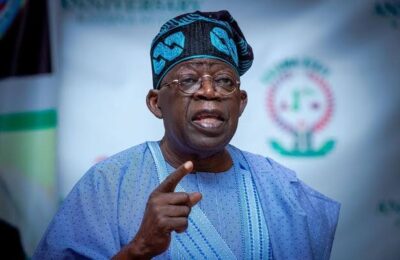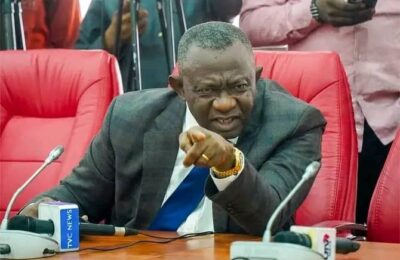As Nigeria inches closer to the 2027 general elections, the nation’s political landscape is witnessing seismic shifts reminiscent of a complex chess game.
There seems to be a remapping of the nation’s democratic trajectory. Defections, realignments, and emergent alliances are reshaping the contours of power, exposing the fragile underbelly of political loyalty and strategy.
Politicians ought to be reminded that If all your enemies who were hitherto opposing you become your friends, then you have succeeded in recruiting a new version of enemies with unhindered access to your camp, your strategies, and your intelligence.
This prescient observation underscores the precariousness of political trust and the double-edged sword of coalition-building. Nigerian politics, with its fluid allegiances and transactional ethos, exemplifies a theater where every handshake potentially conceals a dagger.
The specter of 2015 looms large in the minds of political historians and actors alike. Former President Goodluck Jonathan’s electoral defeat serves as a cautionary tale. At the heart of his loss was the insidious role of moles within his own party, the People’s Democratic Party (PDP). These individuals, masquerading as loyalists by day and colluding with the opposition by night, orchestrated a betrayal that reverberates to this day.
The PDP’s vulnerability was not merely external but internal, a sobering reminder of the perils of complacency and unchecked loyalty.
The phenomenon of dual allegiance, where party members covertly align with rival camps, is not merely an aberration but a recurrent theme in Nigerian politics. It erodes the integrity of political parties, compromises strategic coherence, and ultimately destabilizes democracy.
As we approach 2027, the question remains: will history repeat itself, or will the lessons of the past inspire vigilance and reform?
A critical issue in the political discourse ahead of 2027 is the regional dynamics of power. Having held the presidency for eight years under Muhammadu Buhari, the Northern region faces a moral and political dilemma. Should it field another candidate, or should it support a candidate from the South to uphold the principles of equity and inclusivity?
The argument against a Northern presidential bid is not merely sentimental but rooted in the ethos of national unity. Nigeria’s federal character demands a rotation of power that reflects the diversity of its constituents. This may not be spelled out in our constitution.
Anything short of this risks deepening regional resentments and perpetuating a sense of marginalization among other geopolitical zones. The north as it stands should return back to its springboard with a result oriented permutations on where the pendulum of their support will swing.
The vitality of any democracy lies in its opposition. An opposition that is vibrant, assertive, and resolute ensures that democracy does not descend into a monochromatic tableau of conformity. A scenario where all progressives become conservatives, or vice versa, signals the death knell of democratic plurality.
The absence of a strong opposition reduces democracy to a mere facade, devoid of accountability, checks, and balances. It is this dynamism of opposing voices that breathes life into democratic systems, fostering innovation, challenging orthodoxy, and ensuring that governance remains responsive to the people’s needs.
As political actors strategize for 2027, they must navigate the delicate balance between ambition and principle, coalition-building and loyalty. The electorate, too, must remain vigilant, discerning between genuine leadership and opportunistic posturing.
The stakes are high, and the lessons of history are clear: democracy flourishes not through acquiescence but through rigorous debate, principled opposition, and an unwavering commitment to the common good.
Nigerian political players need to know that Not everyone who comes to your camp wears your cap. This adage encapsulates the enduring challenge of political loyalty and authenticity.
As Nigeria marches toward 2027, the onus is on its leaders and citizens alike to ensure that democracy’s flower does not wilt but blossoms in its full vibrancy and promise.
Nigeria’s Independent National Electoral Commission (INEC) must rise to the occasion and address systemic inefficiencies that undermine public confidence. The 2027 elections present an opportunity for INEC to demonstrate that it can uphold its constitutional mandate by ensuring that every vote cast is a vote counted.
Electoral reform is not merely a policy initiative but a moral imperative to safeguard the sanctity of the ballot box.
It is essential to recognize that power belongs to the masses, not to those who currently wield it. The electorate should not be subjected to disenfranchisement through manipulation, vote-buying, or technical inefficiencies.
INEC must adopt innovative solutions to streamline voter registration, eliminate logistical bottlenecks, and ensure that polling stations are accessible to all citizens. A fair and credible electoral system is the bedrock of democratic legitimacy.
Furthermore, there must be a deliberate effort to eliminate practices that betray the people’s will. From tampering with election results to deploying technological tools that create unnecessary hurdles, such acts corrode trust in democracy and embolden those who seek to subvert it.
Nigeria needs an electoral system that inspires confidence and reflects the true aspirations of its citizens. Anything less is a disservice to the nation and its democratic ideals.
– Oyigu Elijah writes from Abuja.




